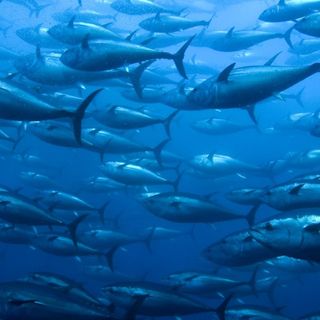A new study has revealed that just like humans, beluga whales enjoy making friends and maintaining social networks by frequently associating with individuals they aren’t closely related to. Scientists believe this gives us more insights into their resilience, and further research can help us understand how it will help them cope with emerging threats like climate change.
Published in Scientific Reports last month, the study was conducted by researchers from the US, Canada and Norway, the study incorporated a three-pronged approach. Speaking to Inverse, the lead author of the study, Dr. Gregory O’Corry‑Crowe, who has has spent years studying beluga whales’ population structure, movement patterns, and habitat use, said: “I’ve always wondered how [beluga whales’] societies are organized and function.”
Adopting a three-pronged approach, first, the team observed beluga whales at 10 locations, in different habitats, across the species’ range — spanning from small, resident groups and populations in subarctic Alaska, to larger, migratory populations in the Alaskan, Canadian, and Russian Arctic, to a small, insular population in the Norwegian High Arctic. Second, the researchers had some of the whales fitted with satellite tags. And third, they collected tissue samples from some of these whales for genetic analysis, in order to determine which whales were related to one another. “Sometimes you just need to sit and observe these animals in the wild… [And] putting these three approaches together gave us a uniquely in-depth view of beluga whale societies,” Dr. O’Corry‑Crowe, who studies the molecular and behavioral ecology of marine apex predators at Florida Atlantic University, said.
Related on The Swaddle:
Life‑sized Robot Dolphins Designed to Replace Real Dolphins in Captivity
The study led the researchers to discover the wide range of grouping patterns exhibited by beluga whales. From brief friendships to longer, multi-year affiliations, beluga whales form smaller groups of two to 10 individuals, to large herds of over 2,000 individuals — across sex and age-groups.
Previously, experts believed that like killer and pilot whales, beluga whales primarily interact and associate with their close kin. However, the study proved otherwise, and provided evidence of abundant non-familial relationships, and an extensive social life, leading the researchers to say: “…the finding that, in most cases, beluga whale social groups are predominantly composed of either distant relatives or non-kin was a surprise.”
“It likely comes down to how beneficial that relationship, in terms of cooperation, for example, is to both individuals,” Dr. O’Corry-Crowe concluded, adding: “This new understanding of why individuals may form social groups, even with non-relatives, will hopefully promote new research on what constitutes species resilience and how species like the beluga whale can respond to emerging threats including climate change.”




